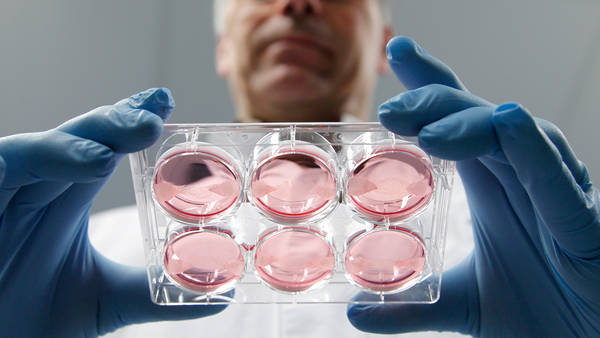The most expensive hamburger costing $325,000 has been developed by Dutch scientist Mark Post. It is scheduled to be unveiled next month at an event in London. The concept of hamburger might change forever as the so called in vitro meat or the cultured meat has become a reality. The astronomical price is the result of the development cost as the hamburger is assembled from tiny bits of beef muscle tissue grown in a laboratory. Dutch Government is behind this pioneering research that aims to create meat that is kinder to the environment and aims to reduce the need to raise livestock.
The Burger Will be Flavored With Only Salt & Pepper
The people behind the research are hopeful that it becomes popular and people actually want to eat it. New York Times has also carried a report about this test tube burger and they claim that the burger tastes reasonably good. It is similar to McDonalds Quarter Pounder, only slightly bigger. Post, the brain behind the research said that it will only be flavored by adding some salt and pepper. Post’s aim is to create the burger with materials not originating from animals. The project had to face a lot of resistance from non believers who said that this is never going to work. Dr. Post who works in the Maastricht University is putting it forward as a proof of concept to show that it works and should be taken forward with required financial support.

Burger Made From 20,000 Strips of Cultured Muscle Tissue
The idea of creating meat in a laboratory with actual animal tissue has been around for decades. The production of cultured meat could greatly reduce water, land and energy use, and emissions of methane and other greenhouse gases. Dr. Post who considers himself a tissue engineer has developed the cultured meat through the use of stem cells. He has been successful but has been unable to simplify the process and that’s why his burger is so expensive. The burger is basically made of 20,000 thin strips of cultured muscle tissue. His research has been funded by an anonymous donor. Dr. Post realizes that the technology is at an early stage and it will take a long time before it can be perfected.




